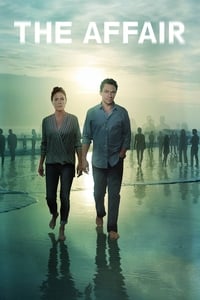
When was the franchise affair written?
Who brought the girl to the estate?
Is the franchise affair based on a true story?
Who stole Grant's thunder?
Is Alan Grant the enemy?
Is the franchise affair a good book?
See 3 more
About this website

The Franchise Affair - Wikipedia
The Franchise Affair may refer to: . The Franchise Affair (novel), a 1948 novel by Josephine Tey The Franchise Affair (film), a 1951 British film, based on the novel The Franchise Affair (1962 TV series), a British television series, based on the novel The Franchise Affair (1988 TV series), a British television series, based on the novel
The Franchise Affair: Their country house will soon play host to a ...
Josephine Tey is one of the best-known and best-loved of all crime writers. She began to write full-time after the successful publication of her first novel, The Man in the Queue (1929), which introduced Inspector Grant of Scotland Yard. In 1937 she returned to crime writing with A Shilling for Candles, but it wasn't until after the Second World War that the majority of her crime novels were ...
The Franchise Affair: Josephine Tey, Robert Barnard: 9780684842561 ...
Though Josephine Tey is not, perhaps, as well known as Agatha Christie, her contribution to the Golden Age of mysteries is unquestioned. In contrast to Christie, Tey rejected formulas and long-running series in favor of experimentation with new settings and odd conjunctions of character and subject matter.
Storyline
Michael Denison plays a lawyer investigating kidnapping charges against Dulcie Gray. Based on a novel of Josephine Tey.
Did you know
Mrs. Sharpe: [entering a coffee-shop, scandalizing the other customers] We've just flown in on our broomsticks for a cup of hot blood.
Contribute to this page
By what name was The Franchise Affair (1951) officially released in Canada in English?
Movie Info
An English country lawyer (Michael Denison) weighs the case of a schoolgirl (Ann Stephens) who claims she was kidnapped by two women.
Critic Reviews for The Franchise Affair
There are no critic reviews yet for The Franchise Affair. Keep checking Rotten Tomatoes for updates!
Audience Reviews for The Franchise Affair
There are no featured reviews for The Franchise Affair because the movie has not released yet ().
Special offers and product promotions
Amazon Business: Make the most of your Amazon Business account with exclusive tools and savings. Login now
Top reviews from the United States
There was a problem filtering reviews right now. Please try again later.
When was the franchise affair written?
Named the 11th greatest mystery novel of all time in 1990 by the Crime Writer’s Association, The Franchise Affair was written in 1948 . This is the only Inspector Grant novel where there is no murder, and the first one where Inspector Grant plays a minor role. For any mystery fan, this one is a treasure.
Who brought the girl to the estate?
Inspector Grant (in his main appearance) brings the girl to the estate, accompanied by the local police inspector and also Robert Blair, where the girl describes the house and shows where she was held. The rest of the story involves Robert and some friends investigating the claims and trying to prove the girl is a liar.
Is the franchise affair based on a true story?
The Franchise Affair is just a perfect gem of a novel, based on the real-life case of Elizabeth Canning in 1753 which you can read about here. Moving the case into contemporary times, Tey updated this story to reflect various postwar concerns, as Sarah Waters notes, looking at the "moral panics - about 'problem' children and juvenile delinquency, for example - of postwar life."
Who stole Grant's thunder?
Although it is nominally part of the Alan Grant series, Grant appears in the novel as a secondary character. His thunder is stolen by a bachelor lawyer, Robert Blair. I thought Tey did a masterful job of describing Blair—a man of a certain age who has never married, never left his small tow.
Is Alan Grant the enemy?
No one knows. Alan Grant's participation in the story is peripheral – since the reader is wholeheartedly on the side of the accused, he is the enemy, at least technically, as he is the face of law enforcement required to investigate and prosecute based on the girl's story.
Is the franchise affair a good book?
To say that The Franchise Affair is a good book does it absolutely no justice. To me, it is one of her very best works, and I've read them all. Not only does it shine in terms of plot and plot turns, but Tey is also examining postwar British society here. I can't really divulge much about Betty Kane without ruining things, although what Tey has to say about her in a cumulative way reflects the dangers someone of her sort represented to the social order of the time. The English public is also looked at here -- the tendency for tabloid readers to believe what they read and make judgments based on their impressions with no real facts strikes a chord with our own times of sleazy tabloids in print and online, as well as the non-questioning sheep who believe everything that comes out via social media. Tey's novel also reflects the tendencies of those same judgmental people to make trouble for those under media scrutiny. And then there's Robert Blair, the attorney who is "usually so placid, so lazily good-natured," but discovers that with the Sharpe case, he has a "focus of interest," changing "the pattern of his life." Used to a somewhat prescribed lifestyle "without hurry and without emotion," he finds himself actually feeling alive with this case, quite possibly for the first time. The Sharpes live in a big house that once upon a time had seen better days; now they barely scrape by without servants or money but there are still certain forms that need to be maintained for the sake of appearances. There's so much more to talk about with this novel, but well time and all of that.
Amazon.com Review
Though Josephine Tey is not, perhaps, as well known as Agatha Christie, her contribution to the Golden Age of mysteries is unquestioned. In contrast to Christie, Tey rejected formulas and long-running series in favor of experimentation with new settings and odd conjunctions of character and subject matter.
Review
Los Angeles Times First-rate mystery, ably plotted and beautifully written. The New York Times Permanent classics in the detective field...no superlatives are adequate.
About the author
Follow authors to get new release updates, plus improved recommendations.
Top reviews from the United States
There was a problem filtering reviews right now. Please try again later.
Top reviews from other countries
It's been a long time since I read a novel in only a couple of sittings. It was not because of the plot. The world depicted in this mystery is one in which you are sure from the start decency will prevail.
When was the franchise affair written?
Named the 11th greatest mystery novel of all time in 1990 by the Crime Writer’s Association, The Franchise Affair was written in 1948 . This is the only Inspector Grant novel where there is no murder, and the first one where Inspector Grant plays a minor role. For any mystery fan, this one is a treasure.
Who brought the girl to the estate?
Inspector Grant (in his main appearance) brings the girl to the estate, accompanied by the local police inspector and also Robert Blair, where the girl describes the house and shows where she was held. The rest of the story involves Robert and some friends investigating the claims and trying to prove the girl is a liar.
Is the franchise affair based on a true story?
The Franchise Affair is just a perfect gem of a novel, based on the real-life case of Elizabeth Canning in 1753 which you can read about here. Moving the case into contemporary times, Tey updated this story to reflect various postwar concerns, as Sarah Waters notes, looking at the "moral panics - about 'problem' children and juvenile delinquency, for example - of postwar life."
Who stole Grant's thunder?
Although it is nominally part of the Alan Grant series, Grant appears in the novel as a secondary character. His thunder is stolen by a bachelor lawyer, Robert Blair. I thought Tey did a masterful job of describing Blair—a man of a certain age who has never married, never left his small tow.
Is Alan Grant the enemy?
No one knows. Alan Grant's participation in the story is peripheral – since the reader is wholeheartedly on the side of the accused, he is the enemy, at least technically, as he is the face of law enforcement required to investigate and prosecute based on the girl's story.
Is the franchise affair a good book?
To say that The Franchise Affair is a good book does it absolutely no justice. To me, it is one of her very best works, and I've read them all. Not only does it shine in terms of plot and plot turns, but Tey is also examining postwar British society here. I can't really divulge much about Betty Kane without ruining things, although what Tey has to say about her in a cumulative way reflects the dangers someone of her sort represented to the social order of the time. The English public is also looked at here -- the tendency for tabloid readers to believe what they read and make judgments based on their impressions with no real facts strikes a chord with our own times of sleazy tabloids in print and online, as well as the non-questioning sheep who believe everything that comes out via social media. Tey's novel also reflects the tendencies of those same judgmental people to make trouble for those under media scrutiny. And then there's Robert Blair, the attorney who is "usually so placid, so lazily good-natured," but discovers that with the Sharpe case, he has a "focus of interest," changing "the pattern of his life." Used to a somewhat prescribed lifestyle "without hurry and without emotion," he finds himself actually feeling alive with this case, quite possibly for the first time. The Sharpes live in a big house that once upon a time had seen better days; now they barely scrape by without servants or money but there are still certain forms that need to be maintained for the sake of appearances. There's so much more to talk about with this novel, but well time and all of that.
